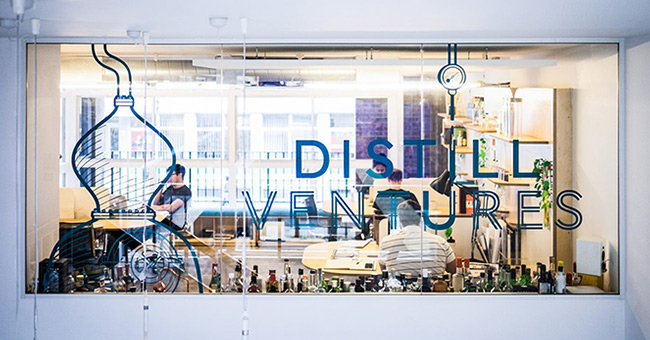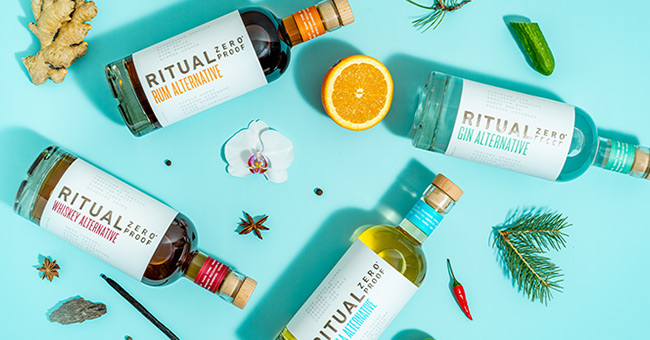
If you’re a BIPOC or woman entrepreneur, the statistics on your access to capital aren’t promising. Black entrepreneurs, for instance, received 1% of the venture capital invested in U.S. startups in the first half of 2021, according to CrunchBase. Meanwhile, only about 2% of venture capital goes to women entrepreneurs. Distill Ventures, a Diageo-funded accelerator that provides funding and support for startup drinks brands, is working to create different numbers in the spirits industry through its pre-accelerator program.
“When we look at the drinks industry, it is an industry that has been run by a lot of old families and larger corporations and has not been changing as quickly as we all would like,” said Kamuti Kiteme, the managing director for inclusive investment programs.
The pre-accelerator, launched last July, aims to open up capital opportunities and business advising for entrepreneurs from underrepresented communities that otherwise might face institutional challenges. Other efforts, like Pronghorn, have sprung up in the past few years as well, hoping to cultivate a more diverse generation of beverage entrepreneurs.
“A lot of the way companies are picked and funded is built on an old world system and a little bit of sometimes a boys network, and I would say a white man’s network,” Kiteme said.

The accelerator developed after Distill Venture’s management took stock of its portfolio companies: brands like leading no-alcohol spirit Ritual Zero Proof, Siegfried Gin and Westward American Single Malt Whiskey. All white male founders.
“We are producing great companies that are successful and breaking new ground and thinking boldly in the drink space. But the representation isn’t there,” Kiteme said.
Cohorts of two to four companies are groomed to be potential candidates for the accelerator program, which offers larger investments as well as expertise, partner networking and support launching in the North American market. To build the pipeline, participants receive an investment of up to $500,000 and six to nine months of advising. The goal is to give start-ups a smoother runway into the accelerator while founders learn about the nitty-gritty of the beverage business. That education might mean they don’t opt to make a pitch for the accelerator program, preferring to run a smaller business or seek other forms of funding.
Kiteme, who has worked for social justice-focused organizations such as the NAACP and incubators for digital organizing platforms as well as high growth companies is now spearheading the pre-accelerator. The program is one of a few designed for early stage companies, which could mean an entrepreneur with a concept or with a couple hundred cases of product sold. Kiteme and the team are starting their third cohort and learning along the way— which means they are still defining how to quantify the criteria for applicants.
Much of the focus is on the individual: people who are good problem solvers, collaborative, and have skills that will benefit them as CEO.
“I like to say that a good investor doesn’t necessarily invest in a product, but in an individual, especially at these early stages,” said Kiteme.
Apart from that, they’re focused on supporting projects that are innovative in areas where they see opportunity. Whiskey and non-alcoholic spirits are prominent categories in the accelerator portfolio. Non-alcoholic spirit Seedlip, Japanese whiskey Kinkori, and Belsazar Berlin Apertif have been acquired by Diageo, which is a separate company but the only funder for the accelerator. Distill Ventures has not yet disclosed the roster of the current pre-accelerator companies, but hinted at announcements coming soon.
While the accelerator is focused on scale and commercial growth goals, its stepping-stone program is adapted to the founder’s needs. Advising might focus more on product development or creating a scale plan that will unlock bigger investment. Initial investment is in exchange for a SAFE (Simple Agreement for Future Equity), which means no equity is exchanged at the point of investment. The SAFE note would convert to an equity stake at the next investment round. Regardless of the size of investment, Distill Ventures will remain a minority investor.
For Kiteme, the pre-accelerator’s significance goes beyond individual business investments. The advisor sees a networking effect building within the spirits industry of like-minded players and organizations that are not only focused on funneling one-time investments to diverse founders, but learning from each other to create systemic shifts that can create generational wealth and greater job opportunities.
“I think that this is building community, and that is something we’re really excited about doing and doing that in conjunction with these other players, large players who have large amounts of access to capital and resources and are figuring out how we make a step change in the industry by working together,” he said.